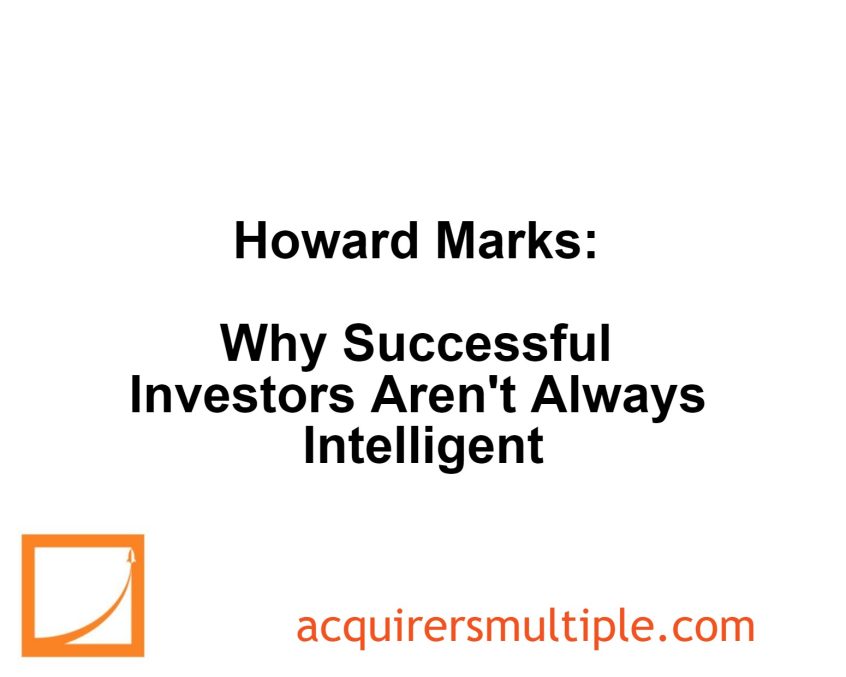In his latest memo – The Folly of Certainty, Howard Marks critiques the diverse and often conflicting predictions about the upcoming presidential election, noting that intelligence and data analysis alone cannot ensure accurate forecasts.
He references John Kenneth Galbraith’s insights on the fallibility of forecasters and the mistaken association of wealth with intelligence. Marks emphasizes that investors’ success may result from luck rather than skill, and their opinions on unrelated fields are often overvalued.
He highlights the danger of overconfidence, quoting Mark Twain’s warning about the perils of certainty. Marks underscores the importance of intellectual humility and revisiting these concepts during times of widespread speculation.
Here’s an excerpt from the memo:
Today, pundits are making all sorts of predictions about the upcoming presidential election. Many of their conclusions seem well-reasoned and even persuasive. We hear and read statements from those who believe Biden should and shouldn’t drop out; those who think he will and won’t; those who think he can win if he stays in the race; and those who think he’s sure to lose.
Obviously, intelligence, education, access to data, and powers of analysis can’t be sufficient to produce correct forecasts. Many of these commentators possess these attributes, but clearly, they won’t all be right.
Over the years, I’ve often cited the wisdom of John Kenneth Galbraith. It’s he who said, “There are two kinds of forecasters: those who don’t know, and those who don’t know they don’t know.” I find myself using this quote all the time. Another of my favorite Galbraith quotes is from his book *A Short History of Financial Euphoria*.
In describing the reasons for “speculative euphoria and programmed collapse,” he discusses two factors “little noted in our time or in past times. One is the extreme brevity of the financial memory.” I often cite this factor, too.
But I don’t remember ever writing about his second factor, which Galbraith says is “the specious association of money and intelligence.” When people get rich, others take that to mean they’re smart. And when investors succeed, it’s often assumed their intelligence can lead to similarly good results in other fields.
Further, successful investors often come to believe in the strength of their own intellect and opine about fields with no connection to investing.
But investors’ success can be the result of a string of lucky breaks or a propitious environment, rather than any special talents. They may or may not be intelligent, but often they don’t know any more than most others about subjects outside of investing.
Nevertheless, many are unsparing with their opinions, and those opinions often are highly valued by the general populace. That’s the specious part. And today we find some of them speaking with conviction on all sides of the issues related to the election.
A lot has been said about those who express certainty. We all know people we’d describe as “often wrong but never in doubt.” This reminds me of another of my favorite quotes, one that’s attributed (perhaps tenuously) to Mark Twain: “It ain’t what you don’t know that gets you into trouble. It’s what you know for sure that just ain’t so.”
You can find a copy of the memo here:
The Folly of Certainty – Howard Marks
For all the latest news and podcasts, join our free newsletter here.
Don’t forget to check out our FREE Large Cap 1000 – Stock Screener, here at The Acquirer’s Multiple:



